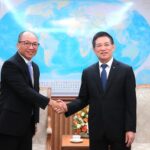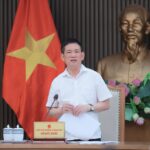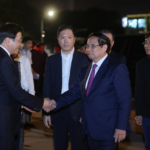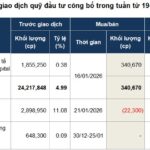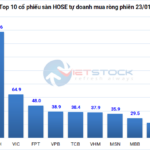On the afternoon of October 20, Deputy Prime Minister Ho Duc Phoc, on behalf of the Government, presented a summary report evaluating the five-year implementation of Resolution No. 31/2021/QH15 dated November 12, 2021, issued by the National Assembly on the Economic Restructuring Plan for the 2021-2025 period.
Of the 27 targets outlined in Resolution No. 31, 23 have been assessed to date. Among these, 10 are likely to be achieved, 9 face significant challenges, and 4 are not expected to be completed. Key metrics such as labor productivity, the number of enterprises, high-tech agricultural cooperatives, and the proportion of agricultural cooperatives linked to value chains, as well as science and technology expenditure, have encountered obstacles, requiring substantial efforts for attainment.
Regarding the five core task groups in Resolution 31, the Government issued Resolution No. 54/NQ-CP, comprising 102 tasks. To date, 86 tasks (84.3%) have been completed, while 16 (15.7%) are ongoing.
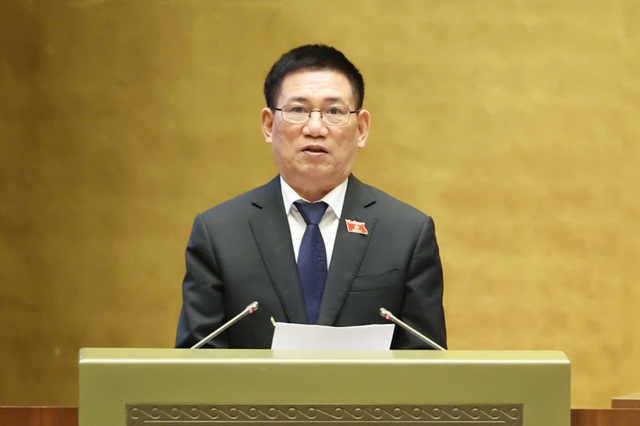
Deputy Prime Minister Ho Duc Phoc presents the summary report on the five-year implementation of Resolution No. 31/2021/QH15 – Photo: VGP/Nhat Bac
|
Despite these achievements, Deputy Prime Minister Ho Duc Phoc candidly highlighted several limitations. Institutional and policy development to support economic restructuring has not kept pace with growth demands. While economic structure and growth models have improved, significant changes remain elusive.
Enterprise development faces constraints, and sectors like industry and services have not seen substantial productivity increases. The restructuring of state-owned enterprises and public service units has been slow, falling short of expectations. Key sectors continue to face challenges, and markets have yet to operate efficiently for sustainable development.
These issues are compounded by global economic risks, legal system inefficiencies, cumbersome administrative procedures, and decentralization challenges. Moving forward, the focus will be on fostering enterprise development and accelerating the restructuring of state-owned enterprises. Based on the evaluation and international context, the Government will implement solutions to create a transparent, equitable investment environment, promoting enterprise and cooperative growth.
– 21:23 20/10/2025
Toyota Aims to Expand Green Vehicle Investment, Boost Localization Rates, and Make Cars More Accessible in Vietnam
On the morning of September 25th, Deputy Prime Minister Hồ Đức Phớc received Mr. Tiền Quốc Hào, Chairman of Toyota Asia, and his delegation during their working visit to Vietnam.
Urgent Submission of Draft Amendments and Supplements to Decree 85 Detailing the Public Investment Law
On the morning of September 15th, Deputy Prime Minister Hồ Đức Phớc chaired a meeting with ministries, agencies, and local authorities to discuss the draft Decree amending and supplementing certain provisions of Decree No. 85/2025/NĐ-CP dated April 8, 2025. This decree provides detailed guidelines for the implementation of specific articles within the Law on Public Investment.
Supplementing VEC’s Charter Capital: What Did Deputy Prime Minister Ho Duc Phoc Have to Say?
On the afternoon of December 10th, at the Government Headquarters, Deputy Prime Minister Ho Duc Phoc had a working session with the Vietnam Expressway Corporation (VEC), the State Capital Management Committee, and relevant ministries and sectors. The discussion focused on two key agenda items: exploring options to supplement VEC’s chartered capital and determining the timeline for repaying the principal and interest of VEC’s government-guaranteed bonds.


